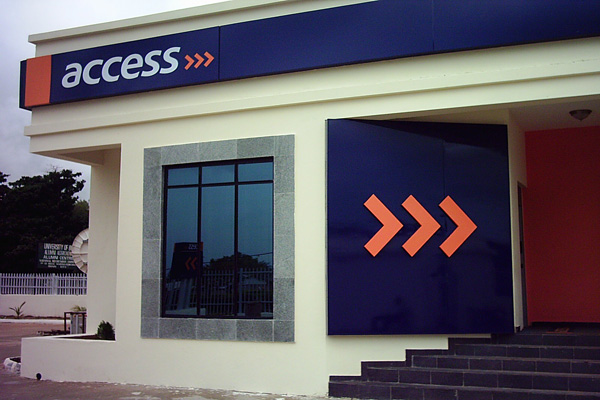- Access Bank Eurobond Paves Way for Nigeria Funding
Relief may soon come the way of Nigeria’s foreign exchange-starved economy, following the successful raising of $300 million by Access Bank Plc via a Eurobond from the international market recently.
The acceptance of the bank’s offer is expected to spur other Nigerian lenders to raise dollar-denominated debt, as well as pave the way for the federal government’s proposed $1 billion Eurobond issue expected to be floated before the end of the year.
In addition, it is expected to result in improved inflow of foreign exchange into the economy, thereby boosting economic growth.
The Access Bank issue has a maturity date of October 2021 and a coupon rate of 10.5 per cent. The Eurobond issue made the bank the first Nigerian lender to raise a bond from the international market since 2014, despite the country’s macroeconomic headwinds.
The bank said the successful outcome of the bond demonstrated its strength, resilience and international endorsement.
Indeed, it has also helped in strengthening confidence in the Nigerian banking system as well as the economy in general.
Fitch Ratings recently warned that the sharp rise in the level of non-performing loans (NPLs) in the Nigerian banking industry, as a result of the tough macroeconomic environment could lead to the downgrade of the financial institutions. Banking sector NPLs rose to 11.7 per cent at the end of June 2016.
Fitch also expressed concern about weakening capital adequacy ratios for banks.
Also, the Central Bank of Nigeria (CBN) had said it was expecting continued deterioration across banks’ oil and gas portfolios during the second half of 2016, as the sector faces sustained low oil prices and production disruptions.
Accordingly, tapping from the Eurobond market would help bolster banks’ capital bases and put them in a position to finance big-ticket deals in Africa’s largest economy with wide infrastructure deficit.
On the sovereign debt, the Finance Minister, Mrs. Kemi Adeosun, at the weekend expressed optimism that the $1 billion Eurobond would be issued before the end of the year.
The issue is part of Nigeria’s plans to borrow a total of N1.8 trillion from abroad and at home to fund an expected budget deficit of N2.2 trillion this year.
“We are appointing parties this week, we are hoping it will come before the end of the year. We have the headroom and we are very fortunate in that regard, we have a very low debt to GDP ratio,” she said at a London conference.
Adeosun informed her audience that Nigeria had started a journey, which would take its economy from being dependent on oil as a primary commodity, to a more productive economy.
To the chief executive of Financial Derivatives Company Limited, Mr. Bismarck Rewane, the move by Access Bank would be positive for Nigeria’s quest to raise debt.
Rewane explained that the Eurobond issue by Access Bank was a strategic initiative. According to him, Access Bank has franchises across various jurisdictions and so runs a multi-currency balance sheet.
“Therefore, Access Bank’s move was strategically related to the bank. But the fact that Access Bank has its headquarters in Nigeria doesn’t mean the funds would be used entirely in Nigeria.
“Access Bank is addressing its own capital adequacy requirements so that it would continue to meet the regulatory requirements in markets where it is operating such as in the United Kingdom and across Africa.
“Access Bank is fully aware that the rating agencies have had concerns about the soundness of the Nigerian banking system. So going ahead at this time to raise funding, shows the versatility of Access Bank, its depth and courage. So that by the time they have maturing obligations in dollars, they would not only have adequate capital, they would have the liquidity to meet those obligations without undermining the bank’s credibility.
“I think it was a wise move. Will it have some effect on Nigeria? Yes, it will. If a Nigerian bank succeeds, that means the Nigerian economy can succeed also in its issue. So it would have positive effect on Nigeria,” Rewane said.
Another financial market analyst noted that with the high cost of raising funds in the domestic economy, a Eurobond issue would be a succour for both the federal government and corporates.
“This would help shore up their balance sheets and maximise their capacity to join loan syndication clubs,” he said.
“There is a lot of cash with investors in Europe and America looking for where to invest,” the source who pleaded to remain anonymous said.
Clearly, the federal government and other corporates that seek to turn to the Eurobond market could ride on the coattails of Access Bank by taking advantage of lower borrowing cost to respectively fund the budget deficit for infrastructure projects and bolster their balance sheets.

 Billionaire Watch2 weeks ago
Billionaire Watch2 weeks ago
 Startups4 weeks ago
Startups4 weeks ago
 News4 weeks ago
News4 weeks ago
 News4 weeks ago
News4 weeks ago
 Bitcoin4 weeks ago
Bitcoin4 weeks ago
 Naira4 weeks ago
Naira4 weeks ago
 Forex3 weeks ago
Forex3 weeks ago
 Treasury Bills4 weeks ago
Treasury Bills4 weeks ago

























